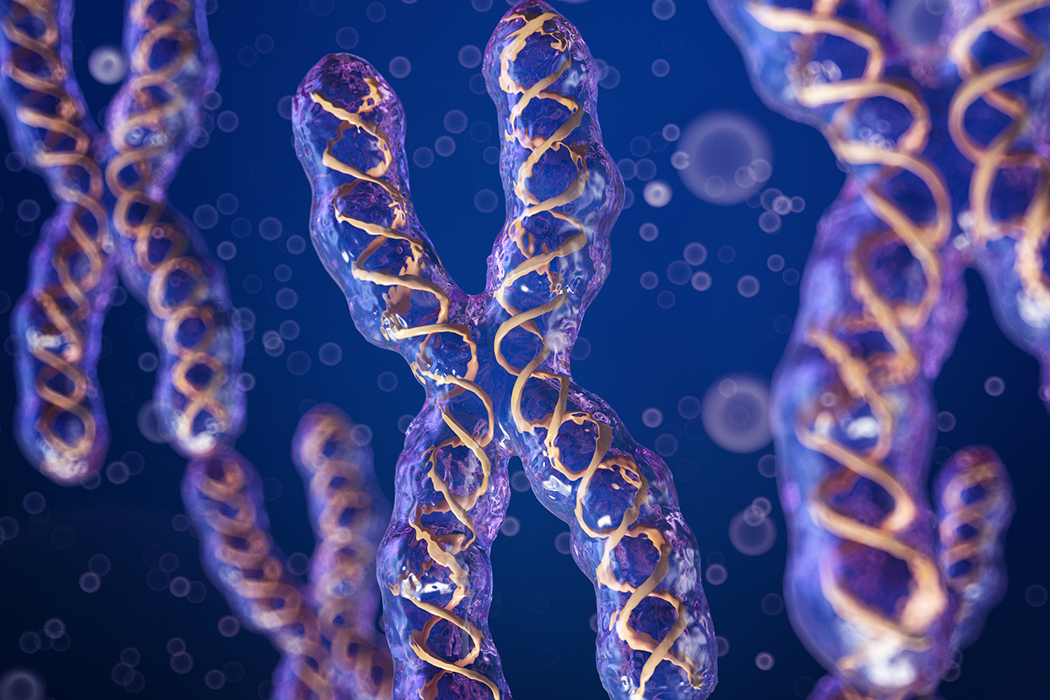Source: Thailand Medical News Nov 27, 2019 5 years, 4 months, 2 weeks, 5 days, 12 hours, 7 minutes ago
A new research by Peter MacCallum Cancer Centre has shed new light on why men are more likely than women to get cancer, uncovering a new role for the X chromosome in affecting cancer risk and mortality.

While males are known to have a higher risk of developing, and dying from, cancer compared to women even when matched for other known cancer risk factors like age, race, smoking history and cancer stage, the drivers of this are poorly understood.
To find out more about this apparent sex-disparity in cancer, Dr. Sue Haupt and team studied the DNA of men and women diagnosed with 12 different types of non-reproductive cancers. They focused on the gene TP53, which produces a natural protector of our genome, looking for differences in the mutation of this gene, and irregular behavior of its partner proteins.
Dr. Haupt, co-lead author on the study told
Thailand Medical News, "TP53 is the most commonly mutated gene in human cancer, with more than half of all human cancers harboring a genetic alteration that interferes with the function of p53 protein."
The researchers showed, for the first time, that TP53 mutations are more common in males than females, which could account in part for the greater cancer risk in men.
The team then focused their search on the X chromosome, as males have only one X chromosome (XY) putting them at higher risk than females (XX) of developing diseases if genes on their X chromosome become dysfunctional.
Dr. Haupt added, "By looking specifically on the X chromosome we were able to find for the first time a group of p53-regulating genes that we thought could, in part, explain the sex disparity in cancer."
Utilizing a new computational approach developed by Franco Caramia, co-lead author and a bioinformatician Ph.D. student in the Haupt lab, they found a cluster of genes located on the X chromosome that can affect the activity of p53 protein, even if the cancers don't have a mutation in TP53 itself.
The researchers found while women have a higher incidence of mutations on the X chromosome, these mutant genes are often not expressed to make proteins. This was particularly true for the p53-regulating genes. In contrast, men commonly express the mutant forms of X-linked p53-regulating genes.
Dr. Haupt commented, "These findings come together to unveil a fascinating story of safe-guarding of women from p53-induced cancers across three intricate and complex layers of biological protection. First, women are less likely to possess mutations in TP53. Second, the presence of p53-regulating genes on the X chromosome means men are particularly vulnerable to defects in these genes. And lastly, there appears to be a barrier in women that prevents the expression of mutant X-linked p53-regulating genes."
The study's senior author, Prof Ygal Haupt, said the findings suggest genetically-assigned sex should be taken into consideration when it comes to risk assessment and potentially even treatment of
cancers.
Prof Ygal Haupt said,"For non-reproductive cancers, clinical decision-making rarely takes sex into account. Our results suggest a person's chromosomal makeup could directly impact whether they will respond to a specific treatment. This can be particula
rly important for the use of new drugs aimed at reactivating p53, which are currently in clinical trials.”
This by Peter MacCallum Cancer Centre -driven research was done in collaboration with scientists at the Walter and Eliza Hall Institute of Medical Research, MD Anderson Cancer Centre in U.S. and the Karolinska Institute in Sweden.
The findings of this research is contained in the paper "Identification of cancer sex-disparity in the functional integrity of p53 and its X chromosome network" published in the journal
Nature Communications.
Reference: Gennady Korotkevich et al. Fast gene set enrichment analysis, .Nature DOI: 10.1101/060012 